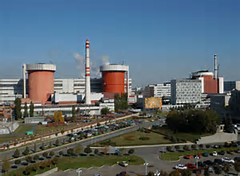QUO VADIS, ITALIA? The quick answer, and essentially the correct one, is that very few have the slightest idea. Almost everyone, however, appears to agree that, at least in the short run, the road leads downhill. For while there is endless argument about what the so-called “Recovery Plan” ( a shorthand name for “how should Euros209 million be spent?”) ought to contain, and Mario Draghi has been charged with forming a government that, among other things, should draft a Plan, the issue of indicating what it is that the territory is supposed to try and recover from has been treated in remarkably cavalier fashion.
A generous interpretation of the endless mutterings and scribblings on the subject would be that the territory and its constituent parts have to somehow grow economically, at the same time as coping with COVID. This growth, it is suggested, is the only route that will permit some kind of improvement in employment, in output, and assist in reducing the public debt. Given that the EU money for “recovery” will only be released if the plan contains elements of “reform” (as defined in the current EU lexicon, which is a latter day reprint of the Washington Consensus outlined at the end of the last century), the growth model will have to incorporate some of those.
For at least the past two months, Italian headlines have been dominated by what has been labelled as a political crisis. The reader of this note is probably looking for some insight into what that frenetic process is all about. I will come to that, and offer an interpretation quite different from much of what has been said. But current events require perspective. Without a long distance lens, the microscope can suggest misleading conclusions.
To understand not only what is actually going on, and what could happen, some evaluation of the state of the territory has to be made. For at least 30 years there has effectively been no economic growth, as conventionally defined. Since population has increased somewhat during those decades, average income per head has fallen. No country in Europe, in or out of the EU, has performed so badly, and none has been so consistently poor. The national government has been a net borrower on international financial markets, so much so that the current ratio of public debt to national income is one of the highest in Europe. At the same time, private debt (of firms and households) has stayed at relatively low levels, consistent with the generally very cautious behavior of the population. Italians are not risk takers at the micro level -yet they contrive to remain extraordinary blind to the accumulation of risk on the meta and macro scales.
The exceptionally bad economic performance is a function of several factors. Most of them are strictly internal. The efforts of a number of politicians to place blame on foreigners are a pernicious diversion. While EU policies do not deserve any praise, the root of Italy’s troubles is to be found in Italy. At no time since the formation of modern Italy has the country had a competent, clean, and efficient bureaucracy. This is a dreadful problem. In the contemporary period, no national government of any color mix has made a serious effort to tackle this huge obstacle to improvement.
Why? Because it is to the advantage of the “casta”, meaning politicians and public functionaries themselves supported by legal and financial “facilitators”, to retain mediocrity. That mediocrity greatly smooths the distribution of cash and favors within a clientelist organizational and social structure. The strong presence of criminal groups, which extend well beyond the South of the territory and indeed are abetted by important economic and legal interests in the North, accentuates the importance of ensuring mediocrity. Put simply: grossly inadequate organization and management of bureaucracy is the guarantee that public funds will not be used to anything approaching the beneficial degree to which they could be dedicated.
In a well- functioning society, the hackneyed phrase “public private partnership” has real content. It does not refer, as is often thought, to specific projects and programs where public entities and private firms come together to carry out specific operations. It does refer to something far more fundamental and precious – a state in which the public space is managed by a highly competent set of institutions and people who can be trusted to work in the public interest. That notion is foreign to the Italian reality. If anyone, inside Italy or outside, thinks Mario Draghi, perhaps supported by a certain number of professionals who share his ethics and competence, can achieve a transformation of the present morass into an operating machine within whatever limited time period (the effective absolute maximum would be 24 months, since national elections must be held in 2023) his government might have, then that person is definitely not living in the real world.
For Italy to begin moving towards some sort of sustainable improvement, it is a recovery in this realm that we are talking about. It is a fundamental shift in mind-sets, in attitudes towards how things should be done. Let’s be clear on a couple of things about such an epochal transformation. The availability of money certainly can assist the process. But available cash is frequently as much a handicap as an advantage – an Italian need look no further than the history of her own locality and country to find ample evidence supporting the proposition. What is much more important is the immense task of persuading large numbers of people that attitude transformation is vital and possible. Reduced to its simplest form, an Italian has to believe that being Italian and working for Italy is worthwhile. If you speak to an Italian, its very probable that the phrase “eccellenza e qualita” will crop up quickly in the conversation. It will be announced with pride, even as if it were self-evident, that “Italy” and “EQ” go together and that scarcely any other place in the world can say the same. This is a delusion of the most dangerous kind. To put things brutally: Italy is very rarely a standard setter. Instead, it needs to become a learner, above all in the public sphere.
The negative impacts of the tragic imbalance between the public and the private are numerous and profound. In summary form, they translate into:
• A love/hate relationship between the private productive sector and the organs of the State. The former is duped by the State when the latter imposes all sorts of value reducing regulation and fails to pay for works and services which it has subcontracted to private operators. Yet it simultaneously has come to rely on the State, especially in certain sectors, as a prime purchaser of goods and services. Since both regulation and purchase contracts (usually delivered through public procurement auctions) are heavily shaped by the lobbying of politicians and administrators, relationships of “cosy conspiracy” have been developed and nurtured. Of course similar things occur everywhere else in the world, including in the major countries of the EU. But the outcomes in Italy are far worse due to the underlying inefficiencies
• A blow hot/blow cold relationship between the political world and the public administration. The two groups neither trust one another nor can do without one another. The former thus laments endlessly about the shortcomings of the latter – but does nothing to remedy them, because it is precisely those shortcomings which grease the wheels of clientelism. The public administration can criticize the political world for its abject failure to support improvements in the administration, yet must be careful not to antagonize those who allocate money and determine organizational changes
The events of the past weeks have taken place in this long established, highly charged and fundamentally destructive environment. Ever since the fall of the Berlin Wall, the country has failed to act decisively in a dramatically altered external environment, whether that environment is charted on a geopolitical axis, a technological one, a social one, or a financial one. It has become an island drifting without hope in a sea where nobody else pays attention to it, unless it poses risks for external interests. Despite constant cries for “Europe” from sundry voices in the political sphere, the fact is that the whole political class has become desperately narrow minded and insular. Thus it is that the most ferocious political infighting goes on while the whole house is burning.
Since 2018 there have been two sorts of coalitions, both ungainly, which have sought to govern the country under Giuseppe Conte as Presidente del Consiglio. In these setups, there have been three large political formations. Two of them, M5S and La Lega, have made plenty of noise while another, PD, has spent its time battling internal splintering. That splintering has constantly been accentuated by the manoeuvering of Matteo Renzi. It was his decision to pull out of the existing coalition which set alight the flames currently consuming the political world.
What is Renzi trying to do? He is a consummate political operator. He wants to convert his presently small splinter group, Italia Viva, into a sufficiently large outfit so that he can again become Presidente del Consiglio. For this he needs to buy time, and take risks to do so. In the here and now, that means dealing mortal blows to M5S and PD, while simultaneously blocking an alliance of the Lega, Fratelli d’Italia and Forza Italia from forcing immediate elections and probably taking power for at least 5 years. Shattering the Conte 2 government has therefore been a calculated risk, which thus far has been working in Renzi’s favor. Renzi judged, rightly, that the President of the Republic would sooner or later have to call upon Mario Draghi to form a government, and to do so in a way which would obtain some form of buy-in from most of the political groups. This is what is going on as I write. In effect, Renzi is seeking to somehow paralyze the others while he regroups and expands his own forces.
The bet is high risk and that for at least three reasons. First, what has gone is a terrible indictment of the whole political class. All persons and groups have demonstrated that they are utterly unfit to resolve problems which they have made a large contribution to creating. Renzi is presumably hoping that he might escape some of the opprobrium because he called out Conte on the initial work on the Recovery Plan and on the mistakes made in managing COVID. Second, there are no guarantees whatsoever that a Draghi government can last very long. Indeed, all signs point to a fairly short life. There could easily be another major explosion before Renzi has shored up his own house. Third, he appears to have deliberately behaved in ways that can antagonize the EU, an entity with which he has generally sought to have decent relations. Why do this? One possible, and quite radical explanation, might be the following.
In the extremely volatile and complex geopolitical settings of today, a country might want to keep its options as open as possible. Unless you are Germany or France, and you are a relatively sizeable country, the EU can be an entity that significantly hinders your actions. It does not have a foreign policy, yet constantly makes declarations devoid of bite but which might compromise your freedom. As things are going, the EU is clearly losing global clout. With the departure of Angela Merkel, an event which is only a few months away, the dilution will become more pronounced. Furthermore, by the end of this year the French Presidential campaign will be in full swing. Rather akin to M5S, Macron’s group, LRM, shows plenty of fissions – and nobody could say that the Presidency has coped well with major social upheavals. Hence EU is a far shakier proposition than it might have once seemed. Same goes for the USA. Meanwhile, Italy needs to deal with others. So what on the surface could be seen as a reckless dash to Saudi Arabia might actually be flying a kite to find links in the geographic area which is really Italy’s doorstep. Certainly the ground is moving under Italy’s feet – so maybe Renzi has concluded that more running than his daily jog is required.
Now to Mario Draghi and what lies ahead in the next phase. Any highly accomplished Central Banker has to be a very shrewd politician – and Mario Draghi has shown himself to be a top notch Central Banker. Described very aptly by Mario Monti as someone who is “resoluto and resolutivo”, there is surely no way that Draghi will want either to tread water or do things by half measures. In my judgment, he will seek to carry through that major transformation of the public/private relationship that I sketched earlier. Since it is a transformation “a longue haleine”, Draghi will embark on a process of construction in the sharpest contrast to the processes of destruction which have characterized the casta. Thus organizational steps, of many kinds, will be launched with the purpose of embedding them. It is a matter of creating a new DNA for Italy. Perhaps the acronym will come to be read, in its Italian form ADN as the “Ambizione da Draghi per la Nazione ”. If anything approaching this can be achieved, everyone will understand that we have not been through that anemic thing called a crisis, but rather a veritable revolution. In that case, Mr Renzi will not need to travel to Riyad the next time he wants to talk about the Rinascimento.
Peter O’Brien, Brussels, 8 February 2021





